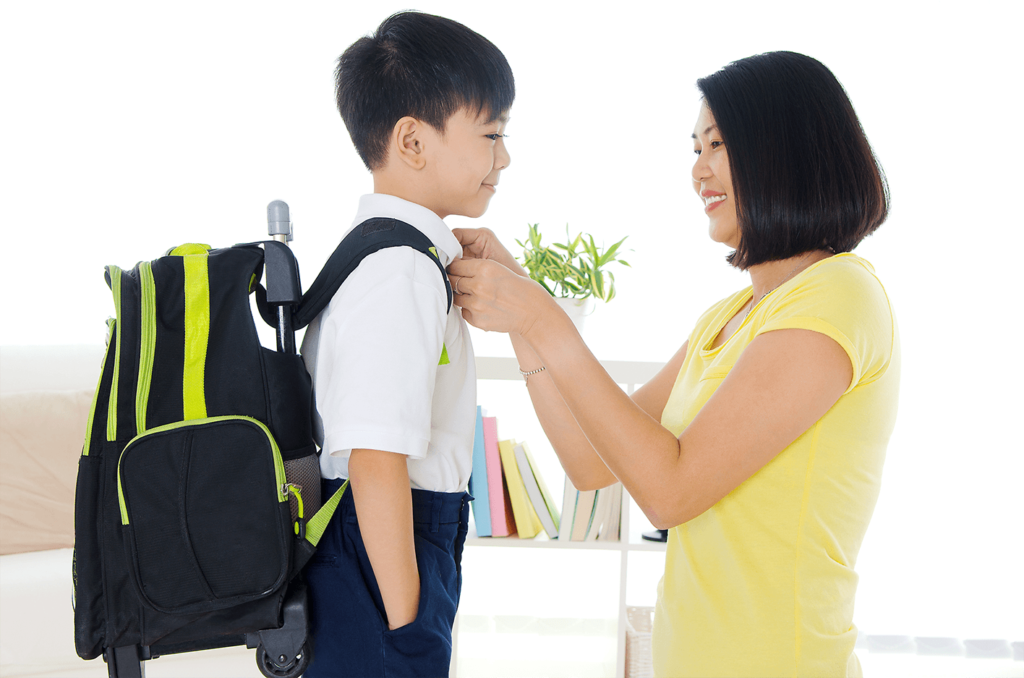 This is it: you’ve scrambled to get your child into the school of your choice. You’ve gone through the voluntary work, interviews, and the anxiety of balloting. Now that the big day is nearing, how would he/she adjust? Here are some ways that you can help prepare your child for the challenges of primary school and their academic life beyond it.
This is it: you’ve scrambled to get your child into the school of your choice. You’ve gone through the voluntary work, interviews, and the anxiety of balloting. Now that the big day is nearing, how would he/she adjust? Here are some ways that you can help prepare your child for the challenges of primary school and their academic life beyond it.
1. Prepare your child socially
“School readiness” and “academic readiness” are not the same. While being ready for primary school does include being academically prepared to tackle the subject material, the skills your child will need to be truly prepared also include social capabilities. While preschool probably had smaller classes and a more relaxed atmosphere with play-centered learning, primary is their first step into the world of formal education. Classes are larger, and the new school structure will require that they follow social and relational rules they may not have been previously accustomed to. To help prepare your child for the social challenges that primary school may bring about, try to talk to your child about social expectations. Concepts like asking for permission or taking turns with a toy are essential social practices they should be familiar to make their transition easier. Some other social skills your son or daughter should develop before starting primary school include:
- Initiating interactions with peers
- Playing cooperatively and being able to share
- Speaking up for himself during a conflict
- Expressing emotions and affection appropriately
2. Talk to your child so he/she knows what to expect
The best way to ease any anxiety about the big transition is to simply talk about it. Explain what a normal school day will look like. Concepts like recess and being expected to truly focus and pay attention during class time may not be expected unless you explain it. Listen to their fears and ask if they have any questions for you. It is essential to establish an open line of communication as early as possible; the changes that primary school brings will likely challenge your child emotionally and mentally. Thankfully, they have you. Just be sure that your child knows that you’re truly there to listen to his worries and answer any concerns.
3. Get on schedule ahead of time
If the switch to primary school entails a drastic change in schedule, you could start acclimating your child to their new routine early. One to two weeks before the first day, start regularly waking her up at the appropriate time for school. This will minimise the physical hardship she will go through when her routine is drastically changed, and if she’s rested and alert during her first day at school, she will be more likely to engage and be engaged both academically and socially.
4. Get the gear
Make sure you have all the supplies your son or daughter needs to be prepared and ready to learn on the very first day. If you didn’t get your child’s book list, call and ask. Some of the necessities may include:
- Shoes
- A book bag or backpack
- Folders or journals
- Pencils or markers
Get started on this sooner rather than later, as items like uniforms and shoes may need to be specially ordered in the weeks preceding your child’s first day. Ideally, you should incorporate your child into shopping for these back-to-school items. Doing so will give him a sense of agency and pride over this next phase in his life, and encourage him to embrace his first day with excitement.
5. Take a deep breath
Once you’ve done everything you can to prepare your child for primary school, it’s time to watch them excel. Try not to worry too much about the first day or how it’s going to go. Trust your child and trust your own parenting techniques. If you feel confident and excited for this next step in their life, then she will feel confident and excited, too. This is first big step to adulthood, let your child understand that, and treat it accordingly. You might be surprised at how your child embraces new roles and exceeds expectations.
Primary school is a child’s first independent step into the formal academic world. Make sure your child has the tools and resources needed to put their best foot forward by building a firm foundation that they will continue to build on throughout their academic life and even into their adult career.






















